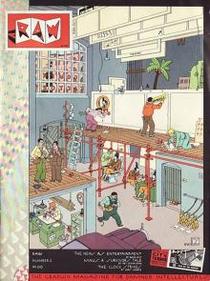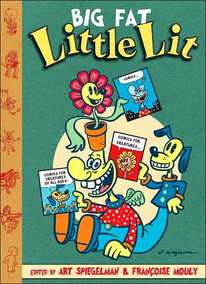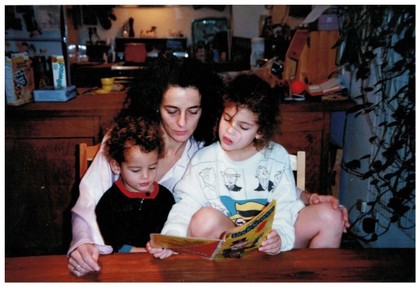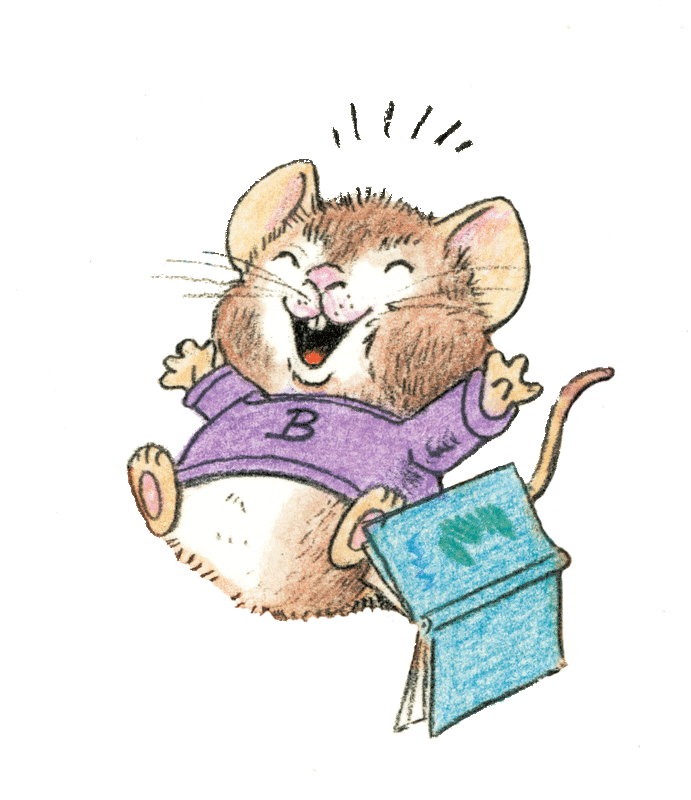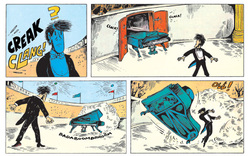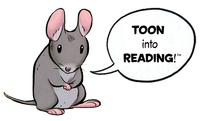Françoise Mouly is an Eisner Hall of Fame Nominee
 Photo by Sarah Shatz Photo by Sarah Shatz The Will Eisner Comic Awards Hall of Fame 2014 Nominees have been announced, and we are SO PROUD to see our very own Françoise Mouly in the running! Vote for our fearless leader, trailblazer for women in comics, and the creator and editorial director of TOON Books. More about Françoise Mouly: Artist, designer, editor and publisher Françoise Mouly has played a role in providing outlets to new and foreign cartoonists, and in promoting comics as a serious art form and as an educational tool. She founded RAW Books and Graphics in 1978. She launched RAW magazine in 1980 with her husband, Art Spiegelman. She was the publisher and designer as well as co-editor of RAW, which is perhaps best known for serializing Spiegleman’s award-winning Maus. A lavishly produced oversize anthology, Raw introduced to U.S. readers the work of Lynda Barry, Charles Burns, Sue Coe, Kim Deitch, Ben Katchor, Richard McGuire, Lorenzo Mattotti, Jose Munoz, Gary Panter, Joost Swarte, Jacques Tardi, and Chris Ware, to name but a few. When Mouly became art editor at The New Yorker in 1993, she brought a large number of cartoonists and artists to the periodical's interiors and covers. She launched Little Lit in 1998, co-edited the TOON Treasury of Children's Comics, and in 2008 she launched TOON Books, an imprint devoted to books for young readers done by cartoonists. The TOON Books have garnered forty awards in the industry, including the Theodor Seuss Geisel award, given to the "most distinguished American book for beginning readers published in English." |
TO VOTE VISIT: http://www.eisnervote.com
The deadline for voting is March 31.
To vote you must be a professional working in the comics or related industries as a creator (writer, artist, cartoonist, colorist, letterer), a publisher or editor, a retailer (comics store owner or manager), a graphic novels librarian, or a comics historian/educator (but you don't have to be... a man!)
The deadline for voting is March 31.
To vote you must be a professional working in the comics or related industries as a creator (writer, artist, cartoonist, colorist, letterer), a publisher or editor, a retailer (comics store owner or manager), a graphic novels librarian, or a comics historian/educator (but you don't have to be... a man!)
| According to MUTHA's Meg Lemke, "Feminist voices remain marginalized in comics. Mouly created the kind of work she wanted to see in the world when the landscape was even more hostile to women. It was such a thrill to get her on the phone—to talk about comics and education, the future of books, and how she’s balanced being an impassioned publisher and a committed MUTHA." Read the Interview HERE |
An excerpt about work/life balance:
"Throughout, my guiding line has been to separate the satisfaction that I get; what nourishes my soul is what I get at home. That’s with my husband, with my kids, with my friends. And when I’m at work, I get a lot of pleasure—I really love what I do—but I try not to get drawn in all of the dramas. I like working with women, I’m prejudiced towards women because I find the working relationships often more supportive, taking pride in each other’s accomplishments. When I’m dealing with male colleagues, many of the work relationships become a version of a pissing contest. I try to put my ego aside there, to be attentive to what the Japanese call “saving face,” to be supportive of my artists and my colleagues, just so I can go home. I don’t want to get overly involved at work, emotionally. Because my emotional life is much more interesting at home; these are people that I have chosen, and people who I love. It’s a matter of balance."
"Throughout, my guiding line has been to separate the satisfaction that I get; what nourishes my soul is what I get at home. That’s with my husband, with my kids, with my friends. And when I’m at work, I get a lot of pleasure—I really love what I do—but I try not to get drawn in all of the dramas. I like working with women, I’m prejudiced towards women because I find the working relationships often more supportive, taking pride in each other’s accomplishments. When I’m dealing with male colleagues, many of the work relationships become a version of a pissing contest. I try to put my ego aside there, to be attentive to what the Japanese call “saving face,” to be supportive of my artists and my colleagues, just so I can go home. I don’t want to get overly involved at work, emotionally. Because my emotional life is much more interesting at home; these are people that I have chosen, and people who I love. It’s a matter of balance."

